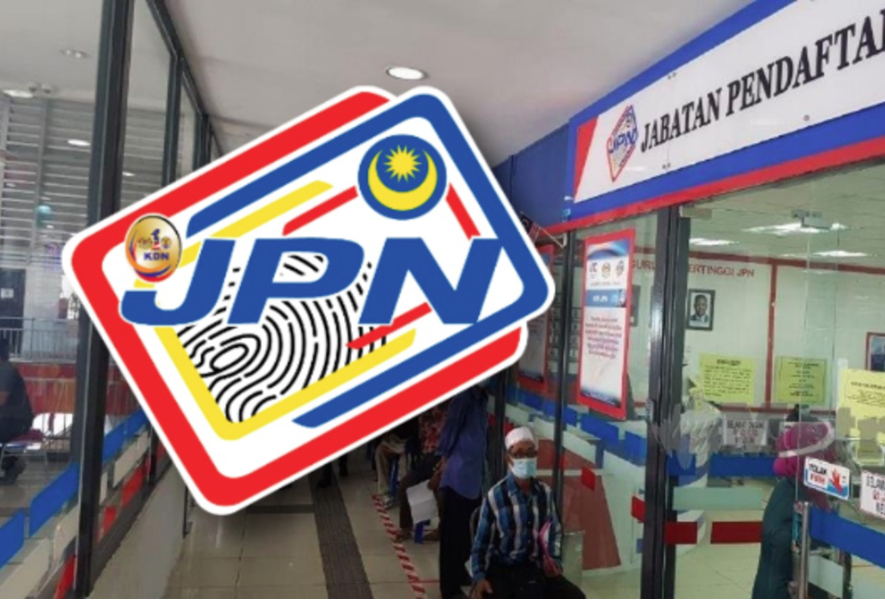Malaysia's bureaucratic inefficiencies worsen statelessness issue - Human rights activists

SHAH ALAM - Human rights activists have highlighted that Malaysia's bureaucratic inefficiencies within government offices significantly exacerbate the country's statelessness issue.
Former stateless man and Malaysian United Democratic Alliance (Muda) member Wong Kueng Hui said that while he did not perceive statelessness as an issue at the age of 12, by the time he was 16, not having an identity card (IC) created significant challenges for him.
This, he said was especially evident when he needed to sit for his Sijil Pelajaran Malaysia (SPM) examination, ultimately leading to his decision to leave school.
"Malaysia is well-known for its bureaucratic issues within government offices and my experience illustrates why.
"Hailing from Keningau, Sabah, I initially applied to the National Registration Department (NRD) in Keningau, but they directed me to apply at the Kota Kinabalu NRD. I followed their guidance, although the logic behind it was unclear.
"Every month, I followed up on my application, only to be told repeatedly that it was still in process. After several years, I demanded answers from the Kota Kinabalu NRD.
"They explained that to obtain an answer, I needed to approach the Home Ministry, not the NRD, as NRD’s role is solely for processing. The ministry, responsible for approvals, is located only in Putrajaya," he said.
Wong then made the decision to relocate to Kuala Lumpur, determined to put everything on hold until his citizenship issue was resolved.
"In 2017, I arrived in Kuala Lumpur and approached the ministry, only to receive a similar response. I kept on visiting the ministry, demanding answers.
"Finally, in 2019, I received a response, but it was not the approval I expected. My application had been rejected without a valid reason.
"Fortunately, I met Mohd Haijan Omar, a lawyer who agreed to help me challenge the matter in court.
"Between 2019 and 2022, we successfully navigated all levels of the legal system, culminating in the granting of my citizenship in November 2022," he added.
However, Wong stressed that the bureaucratic challenges he faced persisted even after his victory in court.
He said despite the court ruling in his favour, NRD continued to request for unnecessary documents from him, creating further complications.
This ongoing issue, he said highlighted the systemic challenges within government offices that remained unresolved.
"Fortunately, I obtained my citizenship and identification card six months after winning my case," he said.
Wong said this during the "No One is Illegal" event which was held by Muda and the Socialist Party of Malaysia (PSM).
Previously, it was reported that the Cabinet has decided to stop two of eight constitutional amendments on Malaysian citizenship law that would have affected foundlings in the country.
Home Minister Datuk Seri Saifuddin Nasution Ismail said the two provisions were Section 19B of Part III of the Second Schedule and Section 1(e) of Part II of the Second Schedule of the Federal Constitution.
He said this was based on feedback from federal lawmakers, among others.
Saifuddin said the ministry initially intended to amend the two areas so that citizenship applications of foundlings would be by registration rather than by operation of law.
Meanwhile, Lawyers for Liberty director Zaid Malek said it was not uncommon for the NRD to disregard court orders.
"There is the law itself and then there is its enforcement and the problem predominantly lies in the execution of the law.
"For instance, in cases where individuals are abandoned as children and their parentage cannot be determined, which falls squarely under Section 19b of the Federal Constitution, the NRD often disregards these cases.
"Even when presented with the Federal Court’s decision, they dismiss them, ignoring the court's decision.
"If they suggest that abandoned children have connections to foreign nationals, it is NRD’s responsibility to prove this in court, but they ignore such requirements," he said.
Zaid also pointed out that the real issue was in the existing law and its current enforcement.
He said if the government’s proposed amendments to the citizenship were enacted, the situation of statelessness could worsen.
"The question remains, why does NRD persistently flout the law?
"According to the Federal Constitution under Section 1(e), anyone born in Malaysia who is not a citizen of any other country should receive Malaysian citizenship. This provision is explicit, yet NRD repeatedly disregards it.
"There seems to be an internal standard operating procedure (SOP) that is unknown to us, which prompts them to automatically reject legitimate applications that adhere to the Constitution.
"In fact, they sometimes refuse to provide the necessary forms to begin the application process. So legally, the law exists, but why does NRD refuse to adhere to the highest law of the land?," he said.
He said amendments to the law were supposed to be progressive.










